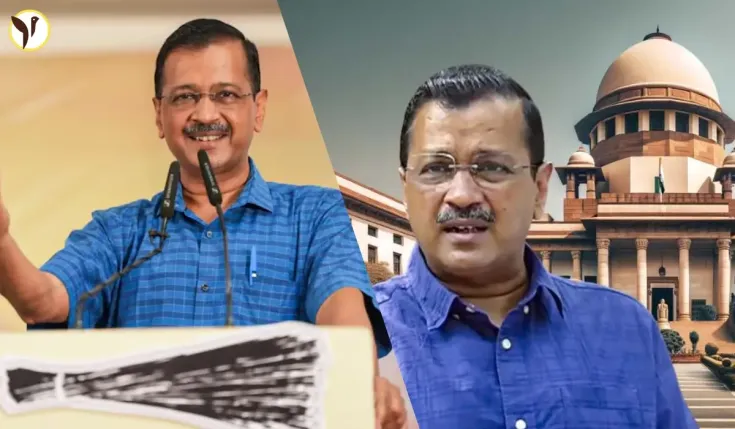The Supreme Court has granted bail to Delhi Chief Minister Arvind Kejriwal in connection with the alleged liquor policy scam. Kejriwal had been in jail for nearly six months without a trial after being arrested by the Enforcement Directorate (ED), which accused him of irregularities in the implementation of the Delhi government's excise policy.
#WATCH | Delhi: On Delhi CM Arvind Kejriwal's bail, Advocate Sanjeev Nasiar says, "... The bail has been granted in the CBI case... It is a big day of relief. The CM was jailed for the last 5 months... Both judges have different views as far as the arrest is concerned. I will be… pic.twitter.com/cvtcxS3Kqp
— ANI (@ANI) September 13, 2024
This legal battle has been a major point of discussion in Indian politics. Kejriwal’s arrest shocked many, as he had long been seen as a key political figure in Delhi. His bail comes as a relief for both him and the Aam Aadmi Party (AAP), as the case has significantly impacted his ability to control. Two months ago, ahead of the Lok Sabha elections, Kejriwal was briefly granted bail for a few days. Now, with the Supreme Court's latest decision, he can finally leave jail after nearly six months in prison.
The excise policy case centers on charges that Kejriwal and others were involved in corrupt practices related to the sale and distribution of liquor in the national capital. The Enforcement Directorate claims that there was manipulation in the way the liquor policy was implemented, resulting in significant financial gains for a few at the expense of the government and the public.
Delhi CM Arvind Kejriwal was granted bail by the Supreme Court in the liquor policy case today. He will be released from jail after 6 months. pic.twitter.com/ZjDniC8E1S
— Brut India (@BrutIndia) September 13, 2024
During the final hearing before the Supreme Court's decision, Abhishek Singhvi, representing Kejriwal, argued that his client had already met the requirements of the "triple test" for bail. The triple test ensures that an accused person will not flee, tamper with evidence, or commit further offenses while out on bail. Singhvi emphasized that Kejriwal had already been granted bail in a similar case filed by the ED, and this should be considered.
Continued incarceration of Arvind Kejriwal violates the right to personal liberty under Art. 21.
— Live Law (@LiveLawIndia) September 13, 2024
Completion of trial in the liquor policy case unlikely to occur in the immediate future : Supreme Court in the judgment granting bail to #ArvindKejriwal pic.twitter.com/7TnXfusm7F
The Central Bureau of Investigation (CBI) has consistently argued against bail, claiming that they have strong evidence against Kejriwal. The CBI’s case largely relies on accounts from "approvers," or former accused who have turned witnesses in exchange for leniency. The prosecution believes that these accounts form a substantial case against the Chief Minister.
Kejriwal’s bail is likely to have a significant impact on the political landscape of Delhi. While his supporters are celebrating the decision, his opponents continue to raise questions about the charges. As the legal process unfolds, Kejriwal’s political future remains uncertain, but for now, he is free to resume his duties as Delhi’s Chief Minister.







